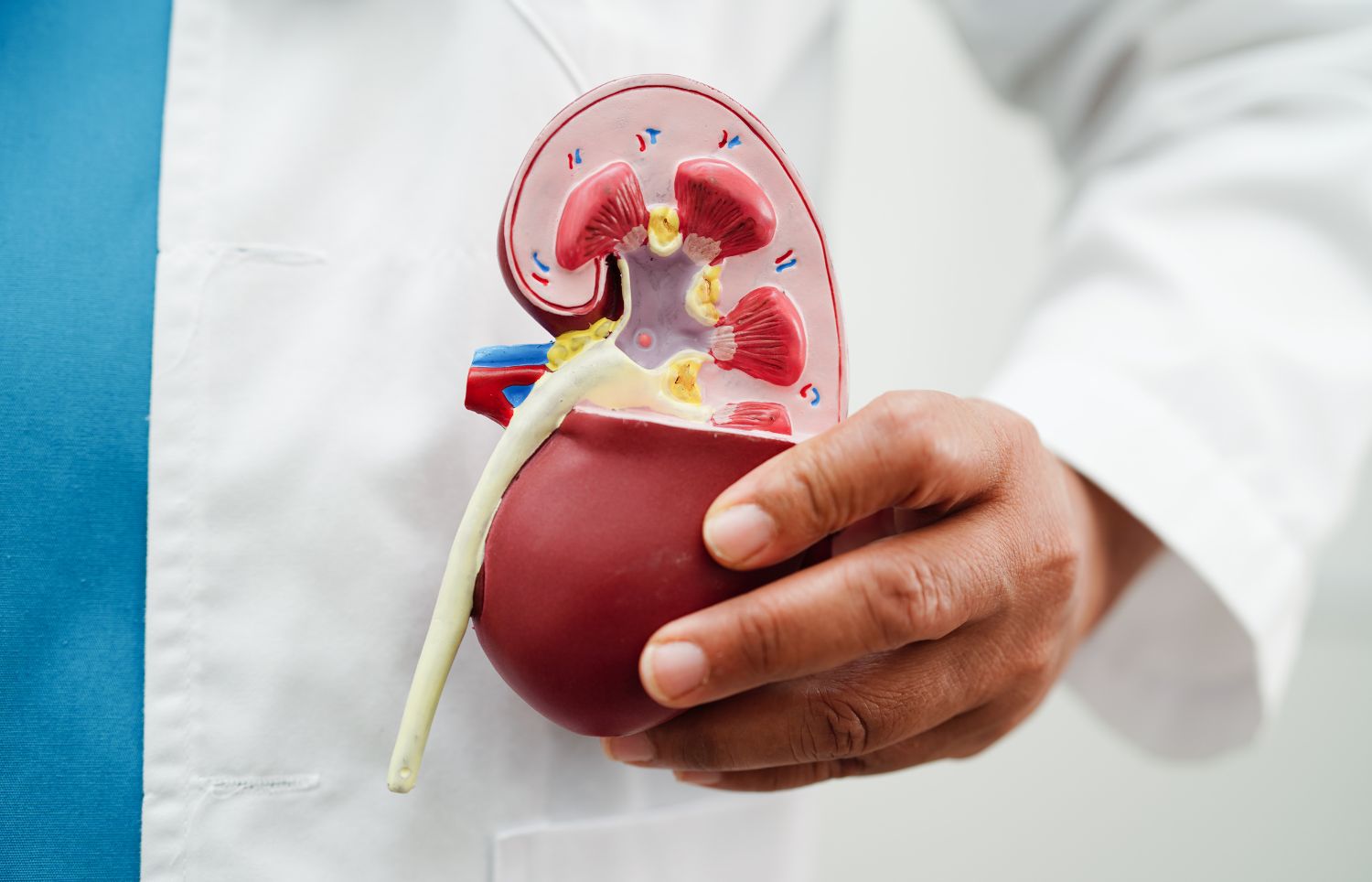Polycystic Ovary Syndrome or PCOS is an endocrine disorder, which causes a hormonal imbalance in the female body. One of the most well-known symptoms are follicular cysts that lay just under the surface of the ovary. These cysts were thought to be the cause of the condition but recent research has revealed that they are actually one of many symptoms associated with the condition and you do not need to have these cysts to have Polycystic Ovary Syndrome.
A common condition that affects around 1 in 5 women and is one of the leading causes of infertility in women. It has a tendency to run in families. At the moment there is no cure for the condition but symptoms can be managed.
Polycystic Ovary Syndrome Symptoms
There are a range of symptoms that are associated with PCOS. Not every woman will experience all the symptoms. Some people may only experience mild symptoms that are manageable, some people can be affected quite severely.
The symptoms most commonly known are:
- Irregular or absent periods
- Irregular or absent ovulation
- Infertility
- Excessive facial or body hair
- Acne
- Weight gain or difficulty maintaining or losing weight
- Mood swings
Some women with PCOS may experience bladder issues including urgency, stress incontinence and nocturia (needing to urinate frequently at night).
PCOS and Bladder Problems
There are a variety of reasons why women with PCOS may experience bladder issues and urinary incontinence. Many women also have unusually high testosterone levels and it is thought that these high testosterone levels could be contributing towards bladder issues. Being overweight can also put pressure on your pelvic floor muscles which support the bladder and bowel and this can also lead to incontinence. If you have had abdominal surgery for your condition such as a hysterectomy, this can also cause your pelvic floor muscles to become weak and not support your bladder effectively.
Polycystic Ovary Syndrome Treatments
As there is no cure for PCOS, treatment is aimed at managing your symptoms. There are some conservative measures that you can take to help manage your symptoms yourself. There are also a range of hormonal treatments and drug therapies available to help manage your fertility or reduce other symptoms such as bladder conditions/ urinary incontinence.
If your symptoms are severe, there are surgical procedures available that can help improve your fertility and urinary incontinence. This page will look at the treatments available to treat your bladder conditions.
CONSERVATIVE TREATMENTS
Diet And Lifestyle
Many women with PCOS struggle with weight gain and may be classed as overweight or obese. It has been found that if you reduce your body weight by just 5% you can significantly reduce your symptoms.
If you’re looking for a way to manage your PCOS through healthy diet, this may be worth considering. Being a healthy weight will also reduce pressure on your pelvic floor muscles, which can improve stress incontinence and symptoms of urgency.
In terms of lifestyle, reducing your intake of sugary or fizzy drinks and caffeine will not only help you to lose weight but will also reduce any irritation in your bladder. Core exercises and weight training can help strengthen your abdominal muscles and your pelvic floor.
Pelvic Floor Muscle Exercises
The pelvic floor is layers of muscles that stretch from the pubic bone to the coccyx and then from side to side. These muscles help to support the bladder and bowel plus the womb in women. These muscles can become weak through trauma such as childbirth or surgery, hormonal imbalances, persistent coughing, chronic constipation or being overweight . When these muscles become slack it can weaken the opening to the bladder causing urine to leak out when placed under pressure. These exercises can help to strengthen the pelvic floor and reduce the occurrence of leaking.
Bladder Diary/Retraining
Bladder retraining is a simple and effective method used for treating urgency and bladder problems. You will be asked to record your bladder habits on a chart and based on the pattern of that chart increase the length of time you empty your bladder by resisting feeling of urgency/frequency.
Tibial Nerve Stimulation
Percutaneous Nerve Stimulation or PTNS as it is commonly known is a treatment that directly stimulates the nerves responsible for bladder control and is a method that can be used to treat frequency and urgency.
Acupuncture
Acupuncture is an ancient practice that believes that illness and pain occurs when a person’s ‘qi’ or energy flow becomes blocked. Inserting fine, sterile needles into certain points helps to unblock this energy flow. A research study has shown that having acupuncture along the sacral vertebra can suppress overactive bladders, symptoms of frequency and urgency and improve stress urinary incontinence.
MEDICINAL
The Contraceptive Pill
For PCOS, the combined contraceptive pill may be used to induce regular periods to stop the womb lining from getting too thick and reduce your chances of developing womb cancer. The Pill can also be used to reduce testosterone levels, which can also reduce symptoms of ‘hirsutism’ (excessive hair growth) associated with PCOS. There is also thought to be a link between high testosterone levels and bladder issues.
Duloxetine
Duloxetine is a medication used to treat stress urinary incontinence. It works by increasing the activity of the nerve that stimulates the urethral sphincter, improving control. Like any medication, it does have some side effects and is not suitable for everyone. Your GP will be able to assess whether this drug will benefit you.
Injectable Treatments
Injectable therapies or urethral bulking treatments are a less invasive alternative to surgery in treating stress urinary incontinence. A bulking gel is injected into the urethra close to the neck of the bladder to prevent urine leakage. This type of treatment has been very successful in many SUI patients.
Antispasmodic Medications
There are several medications available which can help prevent spasms of the bladder muscle, which can help reduce urgency and frequency; they belong to a group of medicines known as antimuscarinic or anticholinergic drugs. Below is a list of some medications that may be prescribed and links to more information.
- Darifenacin Hydrobromide
- Fesoterodine Fumarate
- Oxybutynin
- Oxybutynin Transdermal Patch
- Solifenacin Succinate
- Tolterodine
- Trospium Chloride
- Propiverine Hydrochloride
SURGICAL
If conservative methods and medication are not proving effective at managing your bladder problems, then you may be referred to a surgeon to discuss surgical procedures that may help. Surgery will only recommended if your urinary incontinence is having a significant impact on your life. You may be advised to avoid any surgical routes if you are planning on becoming pregnant in the future. Click the links below to find out about surgical procedures for your bladder condition
- Treatment for Urgency/ Urge Incontinence
- Treatment for Stress Urinary Incontinence
- Treatment for Nocturia
- Treatment for Overactive Bladder
- Treatment for Frequency
Further information and downloads can be found in the bladder hub. Living with a bladder or bowel condition or caring for someone with a bladder and bowel condition can affect you emotionally and socially; sometimes it can help to speak to others who understand your situation. The Bladder & Bowel Community Support Group is available 24 hours today and will allow you to connect with those who share your condition. Start your own topic today or just follow one that interests you.









